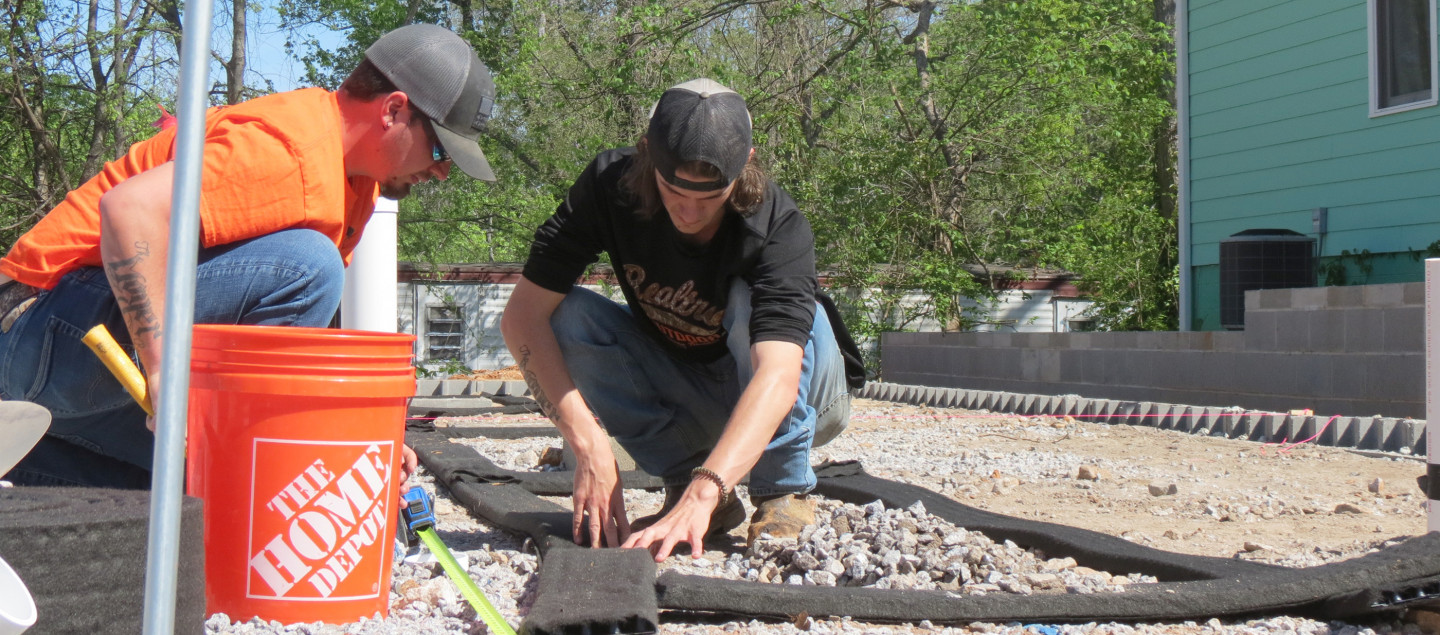UGA Radon Education program promotes awareness, home testing

The leading cause of lung cancer among non-smokers is radon, a naturally-occurring, odorless gas that is common to much of Georgia.
Radon claims 21,000 lives annually, including around 800 in Georgia. The gas is formed from the breakdown of uranium, which is found in high concentrations in granite, rocky soils found in the northern half of the state.
As radon is released into the soil, it can enter buildings through the foundation and well water, where it can eventually build up to dangerous levels.
“Long-term exposure can lead to lung cancer,” said Derek Cooper, a radon educator with the University of Georgia Radon Education Program, which is run by UGA Cooperative Extension and the College of Family and Consumer Sciences.
The United States Environmental Protection Agency estimates one out of every 15 homes in the country has high radon levels, though many parts of Georgia fall above this average.
Being a heavier gas, radon is found in highest concentrations in the lowest levels of homes. Children are more susceptible to exposure due to their shorter stature and the fact they have higher respiratory rates.
The UGA Radon Education Program educates communities throughout the state to increase radon awareness and promote testing.
“I compare radon in the home to other forms of home safety that we generally address,” Cooper said. “Almost every home in the U.S. has smoke detectors, because we know the risk of home fires. In the U.S. about 3,000 people die from home fires, whereas about 21,000 die from radon-induced lung cancer. If we change our outlook, we can lower the number of radon-induced lung cancer deaths in a significant way.”
Radon testing is easy and inexpensive with a $15 kit from the Radon Education Program. The kit hangs for 3-7 days in the lowest level of your home. Homeowners then seal the small test kit and mail it to a lab for processing and get results back in about a week.
If a high level of radon is detected in the home, a radon mitigation system should be installed. The cost is generally between $800 and $1,500, depending on factors such as the size of the home.
The UGA Radon Education program recently teamed up with Athens Land Trust, a local non-profit dedicated to affordable housing and economic development for historically marginalized people, to install radon mitigation systems in two new constructions in Athens.
Installing mitigation systems prior to construction adds only about $200-500 to the cost of a home, Cooper said.
“If you’re doing this on the front end, you’re not having to go through a lot of finished surfaces,” he said.
Utilizing a grant from the EPA, the team first offered training for affordable home builders in the area to educate them about the dangers of radon and to fund radon mitigation materials for future new builds.
Athens Land Trust was the first group to reach out to the radon team.
A radon mitigation company from Canton, Ga., Elite Radon Team, volunteered their services to install the systems on two adjacent homes on Waddell Street in Athens.
The UGA Radon Education Program plans on growing the program with other local builders in the future.
“It’s really important to test for radon and if you do find it, you can fix it and the fix is relatively permanent,” Cooper said.
In this category: Homes
-
Revisiting the economic impact of low-income housing tax credits in Georgia
For every net $1 of state income tax lost to LIHTC, an additional $5.79 of economic activity was generated on average.

-
We Are FACS campaign showcases college’s diverse career paths
Launched in June, the campaign raises awareness about the college's offerings

-
Athens fifth grader wins radon education poster contest
UGA Radon Education Program poster contest helps raise awareness and promote testing

-
UGA, Fort Valley State Extension team up to provide free estate planning program
Workshops helped secure over 470 acres of land valued at more than $3 million

-
UGA Radon Education program promotes awareness, home testing
Program offers home test kits for $15
